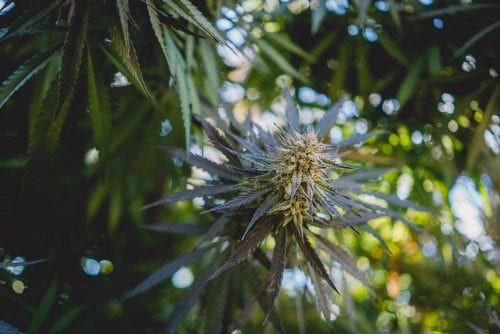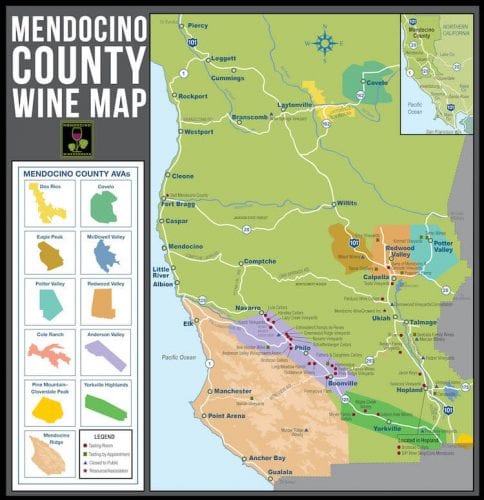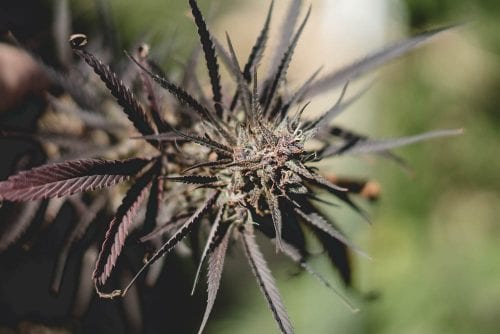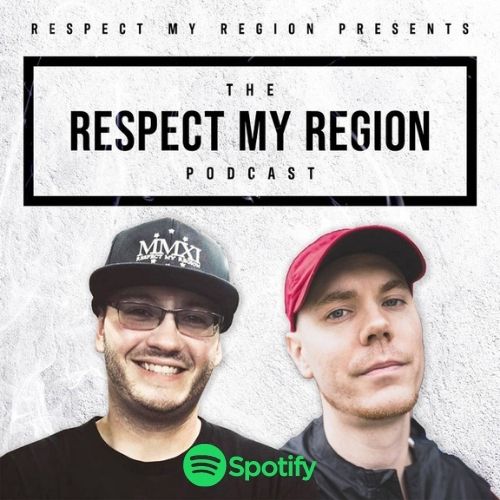Mendocino Generations operates in California’s Mendocino County, spanning between a large section of coastline and the Mendocino National Forest. Mendocino Generations began in 2015 with second-generation cannabis farmer Chiah Rodriques and her husband. What started as two brands has quickly grown into a network a vast network of sun-grown cannabis farms. The network represents a microcosm of the future of cannabis culture.
“We’re kind of the quintessential group of cannabis farmers from Mendocino County. We have everything from the crazy-whacko long-bearded hippy to the young kind of hip surfer vibe,” Rodriques explains.
Mendocino Generations originally began as a way for small cannabis farmers to brace for the incoming wave of recreational cannabis. They knew its government regulation and investor money was poised to reshape the states cannabis culture and economy. The first two brands in the network were Arcanna Flowers and Mendocino Generation Flowers, and that quickly grew to 35 farms in 2017 and is up to 60 this year.
“It’s like herding cats, they’re all going different directions,” she said.
Mendocino Generations acts as an all-encompassing cannabis business ecosystem. They offer services from compliance to education, distribution, cultivation, and aggregation to fill brand orders. They also heavily contributes to cannabis advocacy groups like the Cannabis Growers Association, Emerald Exchange, Mendocino Appalations Project, and the International Cannabis Farmers Association.
While the majority of the farms come to Mendocino Generations with experience, something like 95 percent, there are others that come to California with high hopes and little understanding of how the legal cannabis industry actually operates. While they may be permaculture farmers or contain other traits that make them the desirable people to be in the cannabis industry, some just don’t know what they’re doing. It’s like “building the ship while flying,” Rodriques said with a laugh.
The inexperienced farms create a lot of hard work for Rodriques and her team. But at the end of the day, the hard work and responsibility they shoulder helping small-time cannabis farmers survive becomes reason enough. They truly want to help these brands grow and thrive on their own. But operating a thriving cannabis farm under Mendocino Generations requires mastery of numerous factors. These include but aren’t limited to county regulation, state regulation, microclimates, soil microbiology, permaculture farming, and more.

One of the most challenging aspects for Rodriques is showing old-timey cannabis farmers how to cultivate cannabis in the legal spotlight and shedding them of their old shadowy ways. Some of these people have been isolated in Mendocino County for decades. Some hiding from the weary eyes of the law with behavior that isn’t corrected and changed over a growing season or two. Mendocino Generations is convincing small farmers that they have to network, trade secrets about compost teas and other farming methods. As well as diversify their cannabis portfolio with cannabis oils, edibles, and tinctures to surf the recreational wave and keep their heads above water.
Among the secrets traded, permaculture farming is making its way into Mendocino Generations in a big way. Permaculture cultivation practices involve reversing course from widely used monoculture cultivation that runs commercial farming institutions. Permaculture farming has three core tenets, according to Wikipedia. Care for the earth, care for the people, and fair share, meaning everyone takes no more than they need and reinvests all the remaining resources.
This cultivation practice incorporates other plants and animals into your cannabis garden to increase the biodiversity of the overall ecosystem, which increases the health and liveliness of a cannabis crop. Permaculture farming is a deep wormhole of knowledge pertaining to how to cleverly engineer nature to the crop’s benefits. Other permaculture practices include: rainwater harvesting sheet mulching, rotational grazing, and Korean natural farming. “Korean natural farming is the practice of fermenting fruits and vegetables and redistributing them back to the soil,” Rodriques says. The fermented compost acts just like probiotics act on the human micro-gut-biome – adding billions of live bacteria that increase immunity and vitality.
There are many learning curves associated with permaculture farming. Like learning which plants can and can’t be grown-in with cannabis. Some plants make cannabis more susceptible to pests or diseases like powdery mildew. Another factor to take in consideration is the climate where the cannabis is being grown. Mendocino County is filled with several different microclimates. Thus adding a wide range of variables that need to be accounted for before selecting strains and tertiary plants for the garden.
Many refer to Mendocino County as the Napa Valley of cannabis. Cannabis and wine share terpenes, and are similar in a variety of ways. Including the cultures and business surrounding the plants themselves, and the climates they’re grown in. This Mendocino wine map shows how diverse the geography of the county is. Each subsection has its own climate variabilities, according to guildsomm.com.
You can split up Mendocino County into two subsections: coastal and inland. But even the microclimates that share a coastal terrain can have sharp differences. The Anderson Valley area is cold and features harsh ocean fogs, winds and storms. The Yorkville Highlands is considered an inland extension of Anderson Valley but has higher temperatures and the little fog the area receives is burned off early in the morning. The increased elevation reduces the amount of oxygen in the air.

Mendocino Ridge has a mountainous terrain with up to 2,600 feet in elevation, bringing on cold wind and rain. Cole Ranch features fog, rolling hills, and a thick forest coverage that reduces the sunlight crops will receive. Redwood Valley is inland with wide open country and flat terrain and long sunny days. While the neighboring Potter Valley is hugging the mountain, trapping large amounts of cool air. Eagle Peak is a land of dramatic slopes, elevation changes, high winds, and cool temperatures.
All these different environments give you a sense of how something as commonplace as the weather can dramatically affect the types of strains you grow. If you’re growing in the Anderson Valley or Cole Ranch, one wants plants that harvest quickly because there’s less sunlight available. If you’re growing near Mendocino Ridge or Eagle Peak, you want short and fat plants because there’s less surface area for the wind to knock around. The environment pushes growers to selectively breed for traits like height or disease resistance that help their cannabis thrive in distinct climates. The farms within Mendocino Generations very as much as the microclimates do. Arcanna Flowers is a spiritual lifestyle brand. While Moon Gazer Farms specializes in regenerative farming practices.
Mendocino growers can’t just pick and choose strains to grow all willy-nilly as indoor growers can. There are many failed experiments, “but that’s all part of the learning curve,” Rodriques says. There are unique strains coming out of Mendocino County that you’ll only find there. Part of her job is testing the various farm’s cannabis to ensure it’s up to their brand standards.
One strain Rodriques can’t get enough of is UV Organics’ The Gift; which is one of the highest testing CBD (25.02 percent) and highest terpene testing (4.04 percent) strains on the planet. The Gift is such a hit it’s now being bred with strains like Ringo Star, True Berrymore, and Golden Lemons to experiment with different terpene and cannabinoid profiles while retaining dominant CBD properties. Rodriques and her husband are growing test crosses of the Gift at their farm, Arcanna Flowers, along with other strains like Lemon Fire OG that she highly recommends as a “super energizing sativa.”
Growing experimental test strains is fun, but Rodriques says she doesn’t spend much time in the gardens these days. 60 farms require an administrative backbone that is made by hours of long work behind a desk and traveling to check up on current and perspective farms. Each farm comes into Mendocino Generations with different needs. Some farms are on the ball with everything from cultivation practices to compliance on the county and state level. While others require so much work that it amounts to hand-holding. The disorganized farms who don’t answer emails, for example, can cause headaches and just go their own way because it doesn’t work out.
She expects up to 40 farms to be with Mendocino Generations by this time next year, and there’s also a waiting list for their services. The question is whether the relationships and information expunged from good farms is worth the headache of new farms that might prove to be challenging to work with.
“I’m being a lot more picky,” Rodriques said.
Mendocino Generation provides much more than just cannabis business consulting and cultivation services; even if that’s what people need in the beginning and work their way to an independent state, many stay because of the camaraderie and community the network provides.
“It’s a big support system, we really turn into a big family,” Rodriques concludes, “We’re helping people through a couple of the hardest years of their lives, it really brings people closer together.”

FOR MORE UPDATES FOLLOW RESPECT MY REGION ON FACEBOOK & TWITTER.









